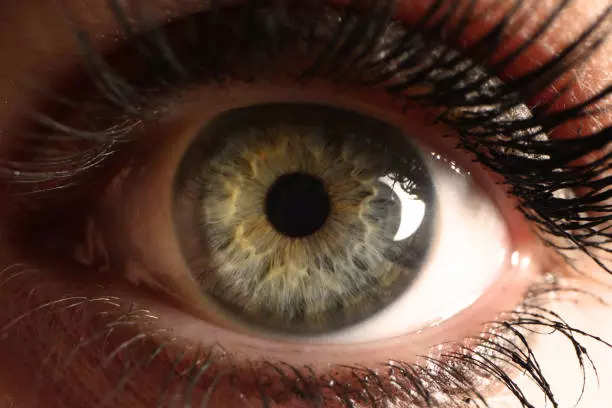BEWARE! 5 Warning Symptoms Of Heart Attack That Appear In Your Eyes
Heart attack is one of the most common yet deadly issues people across the world face. While many signs and symptoms can figure out anything wrong with your cardiovascular health, a detailed eye exam can help you figure out the best. Read on to know a few warning signs of an impending heart attack that may appear in your eyes.

Updated Jun 7, 2023 | 07:31 AM IST

The arrangement of blood vessels at the back of the eye is closely connected to the heart
New Delhi: Eyes always have something to say. From expressing love, hate, and anger to even revealing deadly underlying health problems, your eyes can do it all. Getting a regular eye test or exam done can lead to many discoveries about your health, specifically heart health.
According to health experts, the arrangement of blood vessels at the back of the eye, called retina vasculature, is closely connected to the heart, and so if there is any issue with the eye, it can be directly linked to impending heart disease.
Many studies have found that people suffering from heart disease have retinas marked by evidence of eye stroke1, in which the eye is deprived of blood flow and oxygen, causing cells to die. Apart from a stroke, eye scans can also detect signs of diseases like Alzheimer’s and Parkinson’s.
Warning signs of a heart attack in the eyes
If you have had a heart attack or any other issue related to it, doctors say several signs and symptoms develop in the eyes. If you can read them, then you can prevent your heart from collapsing.
A few of these signs of an impending heart attack in your eyes are:
Amaurosis fugax
It is one of the most unusual symptoms of a heart attack that causes a temporary loss of full or partial vision in one or both eyes. According to doctors, when your heart does not function properly many changes happen like yellow deposits that form under the macula, or the central portion of the retina.
These changes cause focal, repetitive, retinal ischemia.
Also known as monocular blindness, doctors say amaurosis fugax occurs when blood flow is blocked to the central retinal artery that supplies blood to the eyes. One of the most common causes of amaurosis fugax is a blockage of blood flow to the eye from a piece of plaque or a blood clot.
The risk factors for this occurrence include a history of heart disease, high blood pressure, high cholesterol, smoking, or a history of alcohol or cocaine abuse.
Arcus senilis
Arcus senilis2 forms a ring around the cornea, that is mostly noticed right before a heart attack. Doctors say these rings form around the edges of the clear cornea, the rounded tissue over the pupil, and the iris.
The Mayo Clinic says the condition is common in older adults and is usually caused by fat deposits deep in the edge of the cornea. Even though it does not affect the vision, experts associate it with an increased risk of heart disease.
Change in colour of the retina
When your heart is not functioning properly, there can be a sudden change in your eyesight, which can be one of the major signs you must notice.
According to the National Stroke Association, around two-thirds of people who have a stroke have some type of vision change that damage part of the brain that processes what you see. The result may cause visual perception problems like decreased peripheral side vision, double vision, and even blindness.
Retinal vasculature
According to studies, blood vessels in the retina become stiff and hardened when there is going to be a heart attack.
Doctors say that the ratio between the size of retinal arteries to veins is supposed to be approximately two to three but if the artery becomes smaller than the vein, or the vein is a lot bigger and dilated, that can be evidence of a heart attack.
Damaged blood vessels
If during an eye exam, the doctor finds any issue or even slight damage in your blood vessels, make sure to get your heart checked.
Disclaimer: Tips and suggestions mentioned in the article are for general information purposes only and should not be construed as professional medical advice. Always consult your doctor or a dietician before starting any fitness programme or making any changes to your diet.
End of Article
Videos





02:08
What Are Key Differentiating Points In Poonawalla Fin Corp ? | Explains MD Abhay Bhutada

03:23
Breaking News | BJP MP Accuses Leaders Of 'Adjustment' With Congress In Karnataka, Sparks Infighting

03:38
Manipur Violence Erupts Again As Kukis, Meiteis Refuse Peace Talks| 9 Killed In Flare-Up

03:03
How MD of Poonawalla Fincorp Abhay Bhutada Started His Career ? | Business News

03:56
TMC Workers Clash In West Bengal Ahead Of Upcoming Panchayat Polls | Election News













